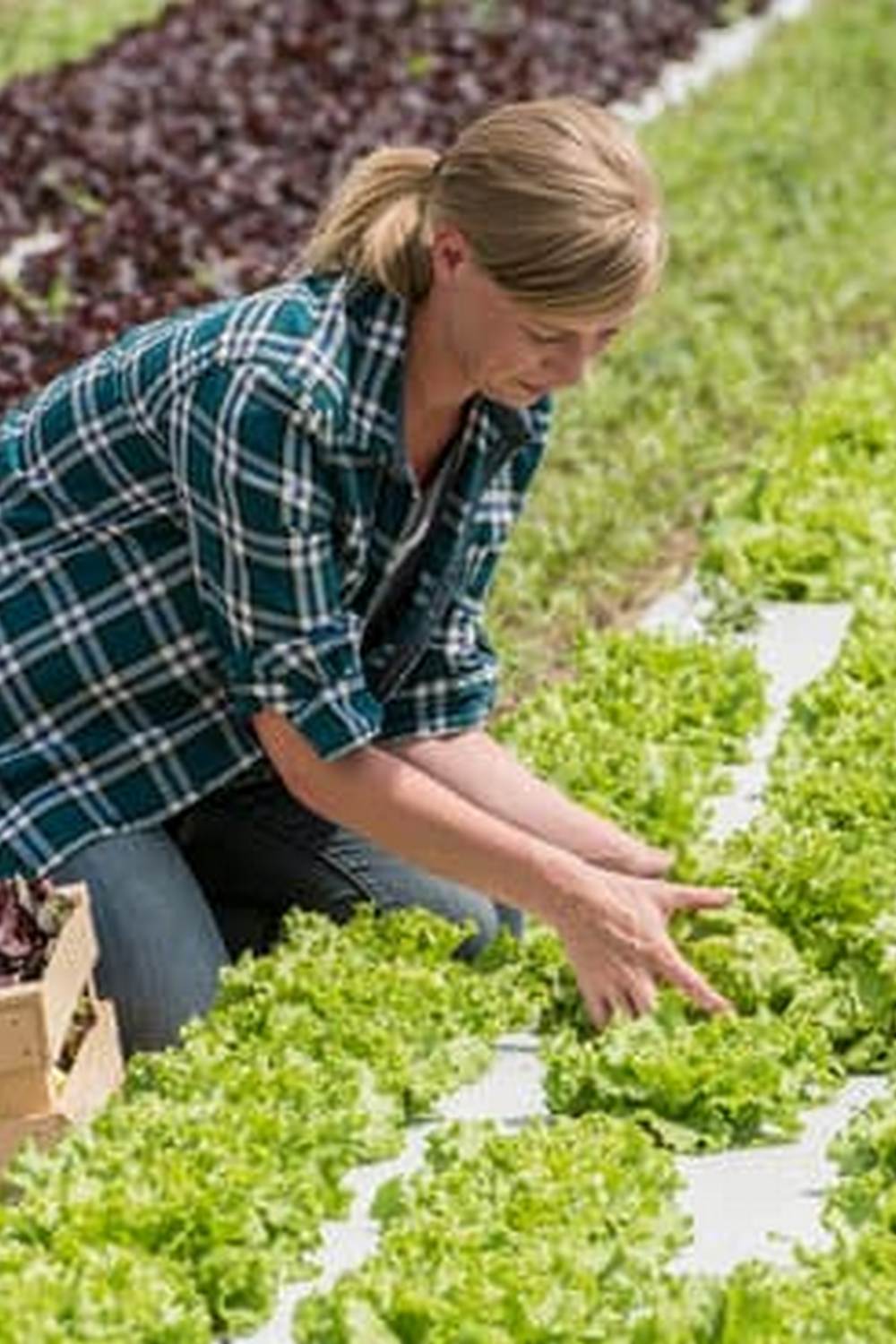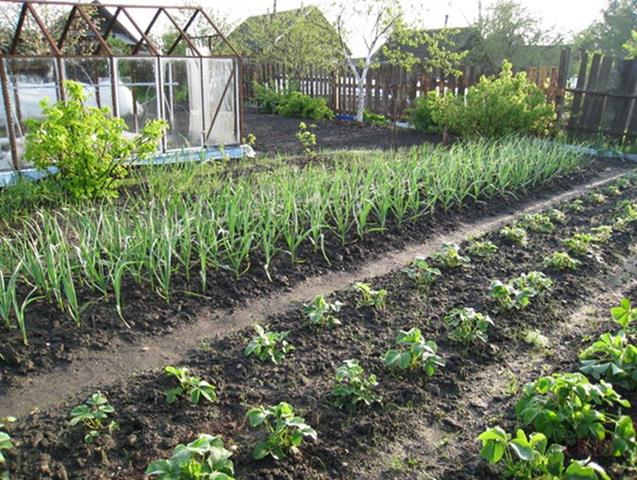Raised vegetable gardens are becoming increasingly popular among gardening enthusiasts due to their numerous advantages. These gardens consist of soil mounds or containers raised above ground level, providing a range of benefits for gardeners. In this blog post, we will explore the advantages of raised vegetable gardens, including better accessibility, improved soil quality, weed and pest control, extended growing seasons, aesthetic appeal, and versatility.
One of the key advantages of raised vegetable gardens is their accessibility. The elevated height of the beds makes it easier to plant, water, and harvest crops without having to bend over or kneel down. This makes it particularly beneficial for individuals with physical limitations or disabilities who may find traditional garden setups challenging to navigate.
In addition to enhanced accessibility, raised beds also offer better soil quality. By allowing for greater control over soil composition and drainage, raised gardens can lead to healthier and more fertile soil for vegetable growth. This improved soil quality can result in higher yields and better overall plant health.
Accessibility
Raised vegetable gardens offer an array of benefits that make them a popular choice for home gardeners. One of the key advantages of raised vegetable gardens is their accessibility. The raised bed design allows for easier access to the garden for planting, watering, and harvesting. This is especially advantageous for individuals with physical limitations or disabilities, as it reduces the need to bend or stoop low to tend to the plants.
Benefits for Individuals With Physical Limitations
For individuals with physical limitations, traditional in-ground gardening can be challenging and sometimes impossible. Raised vegetable gardens provide a solution by elevating the planting area to a more accessible level. This not only makes it easier to engage in gardening activities but also promotes independence and self-sufficiency.
Easier Maintenance
The elevated nature of raised beds also means less strain on the back and joints during maintenance tasks such as weeding and mulching. Watering raised beds can also be done more comfortably without having to crouch down, making it an ideal option for older individuals or those with mobility issues.
Overall, the accessibility factor of raised vegetable gardens makes them an attractive option for all gardeners, regardless of age or physical abilities.
Better Soil Quality
Raised vegetable gardens offer numerous advantages for gardeners, including better soil quality. With raised beds, gardeners have greater control over the soil composition and drainage, leading to healthier and more fertile soil for vegetable growth. This is especially beneficial for those who may have poor quality or compacted soil in their yard, as it allows them to create an optimal environment for their vegetables.
One of the main advantages of raised beds when it comes to soil quality is the ability to add specific types of soil, compost, and amendments that are best suited for growing vegetables. This customized approach can lead to higher yields and better tasting produce. Additionally, the improved drainage in raised beds prevents waterlogging, which can be detrimental to plant roots and overall plant health.
In fact, research has shown that raised vegetable gardens can significantly outperform traditional in-ground gardens when it comes to soil quality and productivity. Studies have found that plants grown in raised beds often have higher nutrient levels and are less susceptible to diseases caused by poor soil conditions. All of these factors contribute to the overall success and benefits of using raised beds for vegetable gardening.
| Advantages of Raised Vegetable Gardens | Better Soil Quality |
|---|---|
| Customizable soil composition | Increased yields and better tasting produce |
| Improved drainage | Higher nutrient levels in plants |
Weed and Pest Control
Raised vegetable gardens offer numerous advantages for controlling weeds and pests, making them a popular choice for home gardeners. By creating natural barriers, raised beds help to keep unwanted weeds and pests at bay, reducing the need for chemical pesticides.
Natural Barriers to Weeds
One of the primary advantages of raised vegetable gardens is their ability to naturally deter weed growth. The elevated design of raised beds creates a physical barrier that prevents weed seeds from easily infiltrating the soil. This reduces the amount of time and effort required for weeding, allowing gardeners to spend more time enjoying their bountiful harvest.
Moreover, the confined environment of raised beds makes it easier to spot and remove any weeds that do manage to sprout, preventing them from spreading and overtaking the garden. This ultimately leads to healthier and more vibrant vegetables without the competition from invasive weeds.
Pest Prevention
In addition to controlling weeds, raised vegetable gardens also provide natural barriers against pests. The elevated height of the beds can make it more difficult for certain pests, such as slugs or snails, to reach the vegetables. Furthermore, some gardeners have found success in implementing companion planting within their raised beds, using natural pest-repelling plants to deter unwanted insects.
The reduced need for chemical pesticides not only benefits the environment but also contributes to growing healthier organic produce. By minimizing exposure to harmful chemicals, individuals can enjoy peace of mind knowing that they are consuming fresh vegetables that are free from potentially toxic residues.
Overall, the effective weed and pest control offered by raised vegetable gardens make them an attractive option for home gardeners looking for a low-maintenance and sustainable approach to gardening.
Extended Growing Season
Raised vegetable gardens offer several advantages when it comes to extending the growing season for plants. The elevated nature of the beds allows for better drainage and warmer soil temperatures, which can promote healthier and more robust plant growth. This means that gardeners can start planting earlier in the spring and continue growing their vegetables well into the fall, providing an extended period for harvesting fresh produce.
The improved drainage in raised beds also prevents waterlogging, which can be detrimental to plant roots. Additionally, the raised soil warms up faster in the spring, giving a head start to plants that require warmer temperatures to thrive. This advantage is particularly beneficial for gardeners living in regions with shorter growing seasons or cooler climates.
Moreover, by using materials such as black plastic or landscape fabric on the bottom of the raised bed, gardeners can further increase soil temperature and create an even more conducive environment for early and prolonged plant growth.
Overall, raised vegetable gardens provide an opportunity to maximize the growing season and increase the yield of home-grown produce.
| Advantages | Description |
|---|---|
| Extended Growing Season | Raised beds have better drainage and warmer soil temperatures |
| Early Planting | Gardeners can start planting earlier in the spring |
| Longer Harvesting Period | Growing season extends into the fall for continued harvests |
Aesthetic Appeal
Raised vegetable gardens not only offer practical advantages but also provide aesthetic benefits to any garden or landscaping. Here are some reasons why raised beds can enhance the visual appeal of your outdoor space:
- Variety of materials: Raised beds can be constructed using a variety of materials, such as wood, stone, or even recycled materials like wine barrels. This allows for endless customization options to match the style and design of your garden.
- Creative designs: The raised nature of these beds allows for creative and unique designs that can add visual interest to your garden. From tiered beds to geometric shapes, there are countless possibilities for creating visually stunning raised vegetable gardens.
- Landscape integration: Raised beds can be seamlessly integrated into the overall landscape design of a garden. By strategically placing and designing the beds, you can create an attractive and cohesive look that enhances the overall aesthetics of your outdoor space.
In addition to these aesthetic benefits, raised vegetable gardens also offer practical advantages such as accessibility, better soil quality, weed and pest control, extended growing season, and versatility. When considering implementing raised beds in your own home garden, it’s important to think about both the functional and visual aspects they can bring to your outdoor space.
Versatility
Raised vegetable gardens offer a great deal of versatility when it comes to the types of plants that can be grown in them. Here are some key points to consider:
- The flexibility of raised beds allows for the cultivation of various types of vegetables, herbs, and flowers. Whether you want to grow tomatoes, peppers, carrots, or lettuce, raised vegetable gardens provide the ideal environment for a wide range of plants.
- Raised beds make it easy to customize the layout and design of your garden to fit your specific needs. Whether you have limited space or are looking to create an aesthetically pleasing garden, raised beds can be adapted to accommodate different gardening layouts and spaces.
- Another advantage is the ability to easily control the soil conditions within raised beds. This level of control allows for more precise adjustments based on the specific needs of different plants. For example, if you want to grow acid-loving plants such as blueberries, you can easily adjust the soil pH within a raised bed to accommodate these specific requirements.
Conclusion
In conclusion, raised vegetable gardens offer a plethora of advantages for home gardeners. The accessibility of raised beds makes them ideal for individuals with physical limitations, while also providing easier access for planting, watering, and harvesting. Additionally, the ability to control soil quality and drainage leads to healthier and more fertile soil for vegetable growth. This can result in better yields and healthier plants without the need for chemical pesticides.
Furthermore, raised beds can extend the growing season by providing better drainage and warmer soil temperatures, allowing for earlier planting in the spring and an extended harvest into the fall. The aesthetic appeal of raised vegetable gardens also adds beauty to landscaping, offering an opportunity for visually appealing designs. Moreover, their versatility makes them suitable for various types of vegetables, herbs, and flowers.
In light of these advantages, it is clear that raised vegetable gardens are a beneficial addition to any home garden. Whether it’s easier access, better soil quality, pest control benefits or extended growing seasons – there are numerous reasons why raised beds offer advantages over traditional gardening methods.
Whether you’re looking to start a new home garden or revamp your existing one, considering the implementation of raised beds can lead to a productive and visually appealing space that will bring enjoyment and bountiful harvests for years to come.
Frequently Asked Questions
What Is the Advantage of a Raised Vegetable Garden?
The advantage of a raised vegetable garden is that it provides better drainage, prevents soil compaction, and makes it easier to control the quality of the soil. Additionally, raised beds can make gardening more accessible for people with physical limitations.
What Are the Disadvantages of Raised Garden Beds?
Some disadvantages of raised garden beds include the initial cost of building them, the need to regularly replace the soil, and the potential for overheating in hot climates. There is also the possibility of limited root growth due to space constraints.
Is It Better to Have a Raised Garden Bed or in the Ground?
Whether it’s better to have a raised garden bed or plant directly in the ground depends on various factors. Raised beds are ideal for improving drainage and controlling soil quality, while in-ground gardening allows for deeper root growth and natural nutrient cycling from the earth. It ultimately depends on individual preferences and specific gardening needs.

If you’re looking to get into vegetable gardening, or are just looking for some tips on how to make your current garden better, then you’ve come to the right place! My name is Ethel and I have been gardening for years. In this blog, I’m going to share with you some of my best tips on how to create a successful vegetable garden.





